|
I initially wrote this piece several months ago after learning of the suicide of yet another young college student, this one the friend of a young person I know well.
Words are lacking to convey my sadness about this loss. The thought of yet another child in such pain and turmoil that ending it all was their solution is simply more than my mind can absorb. And more than we can accept. SMOKE AND MIRRORS Voices are increasing about removing the stigma associated with mental illness, particularly for children and young adults. Depression, anxiety, bipolar disorder…no longer are these foreign terms but instead are becoming part of our lexicon. We read and hear about mental health issues with far more frequency, but it’s not enough. There’s more – far more – that needs to be done. Our children are in crisis. Right in our back yard. Or our living room. They’re dealing with stressors that many parents do not see, understand, or even want to acknowledge. They’re facing expectations to achieve that redefines “raising the bar,” making it beyond their ability to cope and function. And many are walking around every day, going to class and participating in life, all while presenting the appearance of being functional and handling it all when the reality is anything but. Not the case for all, but for many and the numbers are growing. P-R-E-S-S-U-R-E There’s a “magical threshold” that colleges flip like a light switch, assuming that a child who spent 18 years under the care of their parents suddenly becomes an adult, despite the fact that their brain isn’t fully developed until 25. They’re expected to “be adults” and take full responsibility for their lives yet many are painfully ill-equipped to meet the expectations. There’s everything our middle and high school students face, far beyond what we ever experienced as students. Testing, grades, extracurricular activities, volunteering, part-time jobs, accelerated courses, dual enrollment, pre-college assessments, college preparation. Not to mention social media, video games, bullying, cyberbullying, peer pressure, drug and alcohol issues, and home demands. And the earlier emergence and diagnosis of mental health issues. Our children, whether 13 or 21, are balancing on a tightrope that they’re finding increasingly difficult to walk. Many are slipping and others are falling through cracks that are swallowing them whole. CIRCLE THE WAGONS I’m a parent too and my own child, now a young adult, experienced some of these difficulties throughout school, so I know the struggles and the systems that work against parents trying to establish a “safety net” while supporting their child’s need for independence. Parents are labeled “helicopter” parents when they expect supports to be in place and communication to occur with those responsible for their child’s well-being. And yes, this includes in college. Some parents are hands-on – I’m one of them. Others stay in denial because of fear. Some hope it’s a phase that will pass. Many struggle to help their child who may be resistant to their efforts. The reality is that the line between having another day to fight and the last day can be hair thin. My heart goes out to this young adult child whose life had barely started. A child who was close to college graduation and all the experiences that accompany the transition into adulthood. No child should be so alone, unable to cope, and without the supports they need. We as parents need to mobilize in new ways. We need to surround our children – all our children – as was done in communities years ago. If we’re told that if we “see something, say something” about unattended bags on the street, we need to start speaking up when we see, hear about, or think that a child is in trouble. Matters not whether he’s your child’s friend in middle school or she’s your daughter’s roommate in college. We need to be less concerned about getting involved and more concerned about not. Forget about stages, phases, or momentary mood swings. We can’t afford to assume. We need to engage. Reactive is often too late. There’s not a moment to delay. Not one more young life can we lose. Not one more. Debra Isaacs Schafer
Debra Isaacs Schafer is Founder and CEO of Education Navigation, LLC which provides special education services to employees as a company benefit, and a Special Education Advisor and Advocate in private practice. With more than 15 years of experience working with CEOs, senior executives, entrepreneurs, and working parents nationwide and years in the corporate arena, her work focuses on helping parents who have children with autism, ADHD, learning disabilities, and mental health issues navigate through school from preschool through college.
Connect Website: www.Education-Navigation.com Website: www.debraischafer.com Email: [email protected] Twitter: @EDNavigation Facebook: @EducationNavigation
0 Comments
My first job out of college was working for the New York state chapter of the Independent Insurance Agents and Brokers of America, a trade association for insurance agents and brokers. One of the primary functions of the group was to advocate for the membership in Albany and Washington, to help pass favorable laws, to influence industry regulations and fight legislation and regulation that would harm the industry. There was also another association that did the same thing- the Professional Insurance Agents. While the IIABA and PIA were usually on the same page when it came to broad goals and member advocacy, they sometimes had differing strategies and priorities, they competed for membership, for funding, and for attention, both from their membership and from legislators, regulators and other industry groups. There were some state chapters that had merged their associations, and they didn’t seem to have many of the issues we would sometimes run into in New York. One organization meant one message, one strategy and one set of priorities.
When I look at the community of organizations involved in mental health advocacy, I see an even more fractured landscape, with multiple groups that have overlapping missions and I wonder, just how effective can they be? Please don’t misunderstand this worry as an attack aimed at those involved in these groups- either the founders, the staff or the volunteers. I have a tremendous amount of respect and appreciation for their efforts to advocate on behalf of individuals and families that struggle with mental health issues. But take the example of Bring Change 2 Mind, the campaign co-founded by actress Glenn Close to help reduce stigma and increase understanding of mental illness. They’ve partnered with football player Brandon Marshall’s Project357 for the #StrongerThanStigma campaign. Both organizations are about mental health awareness, and raise money that goes towards education, treatment and research. It’s an awesome and admirable goal. In fact, it’s a goal shared by the No Stigmas movement. And Conquer Worry. And Stamp Out Stigma. And Come Out of the Dark. And Stand Up for Mental Health. And Active Minds. In Britain you can find the Rethink campaign, in Canada it’s Let’s Talk. These are the organizations primarily centered around raising awareness and reducing mental health stigma. I’m sure there are some I’m not mentioning here. There are others that deal with advocating for mental health policy issues before Congress and state legislatures, like Mental Health America and the National Alliance on Mental Illness. My question for you is whether or not you can think of a single unifying campaign for mental health advocacy. I can’t. I’ll peruse Twitter and I can find at least half-a-dozen different hashtag campaigns. Which is the most effective? If you wanted to donate to one of these organizations, how would you choose? Or if you were a local community outreach program looking for support and funding for a school anti-stigma program? Or a resource for your college campus? Which of these organizations offer funding for those types of programs? Are they contributing to research grants for mental health professionals to learn more about depression, or anxiety or bipolar? Are they funding suicide and crisis hotlines? It’s confusing and can actually dilute the efforts these organizations are making. I won’t pretend I know there’s an easy solution. Each organization has its stakeholders, whether it’s staff, sponsors, volunteers, etc. Many of them may have a niche that they serve- college students, veterans, or maybe family members of those coping with mental illness. But consider the overhead costs that could be saved if even some of these groups were to consolidate staff and offices. Think of the strength a unified strategy would have for public awareness. The pink ribbon for breast cancer is a powerful unifying symbol. Everyone knows what it is. What if there were a similarly powerful symbol for mental health? Unfortunately that’s unlikely to happen anytime soon with so many different groups out there promoting and pushing their own hashtag, their own wristband, or slogan. Even as consolidation appears unlikely, maybe these groups need to get together for an annual conference to discuss a unifying campaign that they can each promote to their constituencies. A common agenda and an organized strategy would end up helping more people than these Balkanized efforts. I’d love to hear some feedback on this, especially if you’re associated with one of these groups. Is it a concern you share? What are the things preventing groups from coming together? I want to hear from you! Paul Banuski Originally posted at: paulsletters.com Previous Posts From Paul:
About Paul Banuski: Paul Banuski is a thirty-one year old managing his depression and anxiety issues. In March of 2014 he survived a suicide attempt, and since then has been treating his mental health through a combination of therapy, medication and mindfulness practice. He writes about his experiences at PaulsLetters.com, a blog that touches on mental health, religion, politics, media and how they intersect. He lives in the Finger Lakes region of New York.
Connect With Paul Website: www.paulsletters.com Facebook: www.facebook.com/paulslttrs Twitter: @PaulsLttrs E-mail: [email protected] If you are struggling with your life's direction, this short inspiring story of redemption and perseverance could be timely! In this podcast you will learn:
If you are struggling with your career, check out this post on stress & finding fulfilling work. (Link)
The first time melancholia, depression, anxiety – and by this I don’t refer to just a brief spell of the blues, which most people experience at times during their life – knocks you sideways it’s a case of, ‘you never knew what was coming ! Unless it was related to a serious problem in the sufferer’s life, such as bereavement, divorce, loss of their job, initially you can’t determine what’s wrong other than the dreadful effects. So, to the uninitiated, the initial signs of the onset of the Dark Night of the Soul are often a strange sense of unease and concern, even though nothing is outwardly amiss but, nonetheless, the queasiness and the unsettled mood are tangible and disturbing.
The abrupt early morning waking, usually before 5.00am each day, is hard to comprehend until, along with the shock of fear, dread, nausea and panic as to what the forthcoming day offered, it becomes a regular and frightening pattern. This waking is often so sudden and abrupt that it can be likened to the shock of having a bucket of ice cold water tipped over the sleeping body. Drenched in sweat on a cold Autumn morning and totally lacking in appetite until night fall, a deep depression would fail to lift, even if no crises occurred during the day. Occasionally, these demons could be seen off temporarily, but never totally banished, by an evening’s alcohol only to return by morning. During the gut-churning morning drive to work each day, the previously experienced pleasure of turning on the car radio to music in order to lift the spirits would, conversely, have the opposite effect as records recalled from happier, carefree, times only deepened the depression, evoking a sense of nausea and despair, drenching me in a clammy sweat even before I reached the purgatory of work where minor setbacks took on the magnitude of major proportions. Existence began to take on the quirks of a sadist as the odd optimistic moments, which offered a straw to clutch at, were rapidly dispelled at the first sign of some pessimistic mental signal, triggered, maybe, by something as ‘daft’ as a dark scene or episode in a television play or film. This was my lot the first time……. Michael Daniels 
I am aged 68 and retired, though I have been providing help part time to the company I worked for, for over 20 years and retired from 3 years ago. I worked for most of my adult life as a Quality Manager in Industry. I am married and have two grown up children and four grandchildren. I read a lot and am currently halfway through an Open University degree course in Philosophy and Psychology.
Connect on Twitter: @Leveller49 What Stress Is Doing To You
Your Brain
Chronic Stress (and exposure to glucocorticoids) can kill some of your brain cells. A study conducted by Dr. Robert Sapolsky of Stanford University in the 1980's found that chronic stress caused damage to the hippocampus (the part of your brain that drive learning and memory). It changes brain circuits and as a result, acute stress can make you 'stupid' in the short term! Your Heart Stress restricts and clogs arteries reducing blood flow to heart. High levels of stress today will effect you today and your health for years to come. Your Immune System Stress can cause havoc on your immune system. A research paper (Segerstrom & Miller) from 2006 studied 300 empirical articles and concluded that our immune system is detrimentally affected by chronic stress.
"The results of this meta-analysis support this assertion in one sense: Stressors with the temporal parameters of the fight-or-flight situations faced by humans’ evolutionary ancestors elicited potentially beneficial changes in the immune system. The more a stressor deviated from those parameters by becoming more chronic, however, the more components of the immune system were affected in a potentially detrimental way." Segerstrom & Miller (2006)
Your Body Weight
The Whitehall Study found a link between stress and weight gain in the abdominal area. Weight gain in the 'midsection' is the worst type of fat your body can carry. This is dangerous fat as it produces different chemicals and hormones that harm your body. Your Aging Process We have 46 chromosomes that are each capped off with a telomere which protect the ends of our chromosomes from fraying. Stress can change these genetic structures. Our telomeres naturally shorten as we age, but scientists now know that the stress hormones speed up the decaying process. Dr. Elissa Epel did a study of mothers who were taking care of disabled children and thought to be understandably under chronic stress. The study looked at the telomeres of these women and for that for every year of chronic stress, they aged roughly six years. Conclusion Dr. Elizabeth Blackburn, a thought leader in telomere research, co-discovered an enzyme called telomerase can repair damaged telomeres. This enzyme is stimulated by compassion and caring for others. Developing COMPASSION & MINDFULNESS could help heal the damaging effects of stress and possibly help us live longer, healthier lives.- Jay Coulter Sign-up For Tips And Resources On Mental Resilience (Click Here)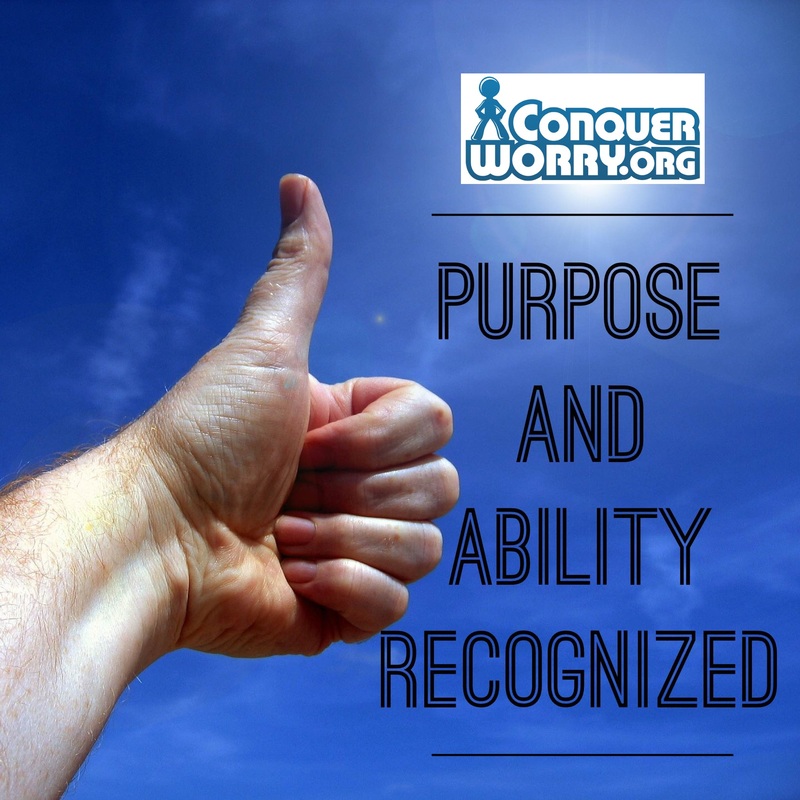
It is hard when one is being torn between the best possible emotional stability for their child, and the fear of outsiders (psychologists, teachers, school mentors) looking into an unhealthy lifestyle that needs to be readjusted with positive thinking and higher self-esteem to bring about change. Living in an environment of criticism though arguably loving with a loud and demanding dictatorship on one side; and a caring, teaching, protective, though strict with guidelines and rules and an ever fighting and fearful spirit on the other side, made for a challenging family household. And for others to look into the dynamics of these surroundings was a terrifying experience knowing that in the past that household could have been destroyed and dissolved by these authorities. So a balance had to be achieved to not allow this to happen again. Protection at all times a must!
To say that I who overcame and balanced these stressful conditions for years is not of strength is ignoring a bold and fighting being, and yes, someone with purpose and ability. And to realize that I am of more capability than I allowed myself to recognize is shameful. I always made the choice that ultimately benefited the children though my heart may have been filled with fear. I always took into account the best for them, and discounted hiding or isolating. It was something that had to be done. And yes, I am a stronger person because of it. And though I was hospitalized two times while under these stressful conditions in the whole time of raising my children into adulthood while acquiring PTSD and managing Bipolar and Anxiety Disorder, I still managed to make the best contribution I could have to society – my beautiful children. I think as I am older now and the children are grown, what I struggle with is admitting that my Bipolar is a debilitating disorder that has taken away my career. I also know that the children are now on their own, and thankfully succeeding in life. My life has changed significantly and to learn new purpose has been difficult – though not impossible. I have dealt with oppressing challenge in the past and taken the prize. This is like nothing that I haven’t yet been able to achieve. The future is going to be bright, I’m sure. Kelsy King 
Connect with Kelsy http://thejourneyofpeaceandhappiness.me/ https://www.facebook.com/kelsy.king3 https://twitter.com/jadandkking https://www.facebook.com/insearchofjoy https://www.pinterest.com/vacationplease/ 
The definition of Mental Resilience can dramatically change based on the obstacles you are facing. One day you may be faced with a tough work deadline and the next day a life changing cancer diagnosis that puts the work deadline into perspective. Over the past 6 years I have focused my research on stories of mental resilience, as well as people who are making a difference in the lives of others. I recently ran across the Pancreatic Cancer Action Network and found an organization that is doing fantastic work in both areas. The Survivor Stories (Link) and their Advocacy Efforts (Link) are a template for any organization. After reading countless survivor stories, I have found 6 reoccurring themes that could help anyone trying to build their mental resilience.
I have highlighted two survival stories below, but please check out www.pancan.org for more information. Jay Coulter
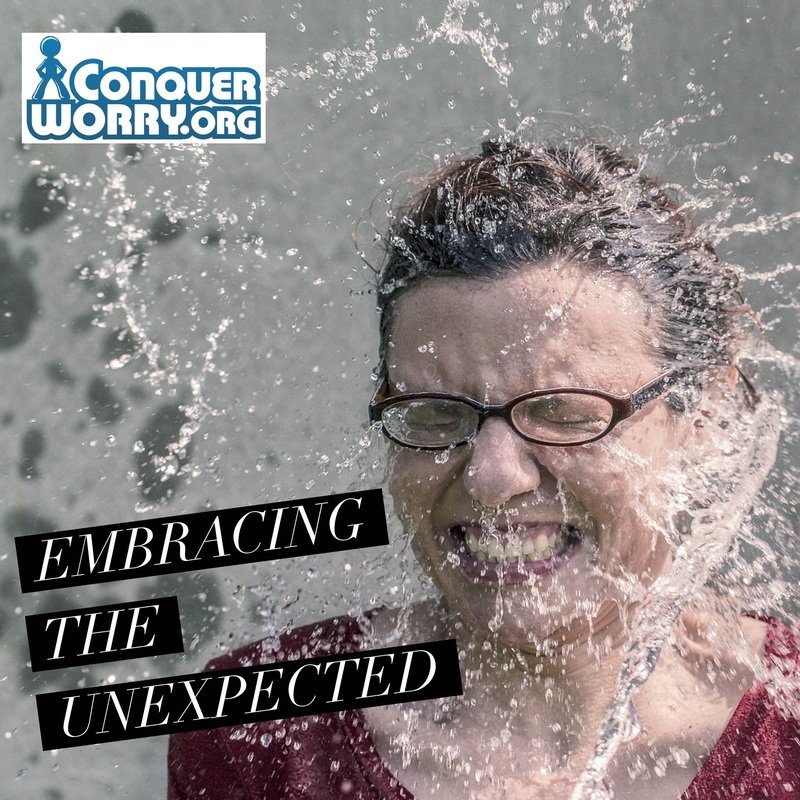
There are times when we have an idea that, on the surface, seems like it will be a good fit. The expectations seem reasonable and attainable, we may even have experienced success in the past. We know to anticipate a few ups and downs but for the most part, feel confident that the day will go well.
I had one of those days this week. We had made a plan to attend an amusement park with relatives. This type of outing has always gone quite well in the past. It was quite chaotic trying to get ready to leave that morning, but we finally made it onto the highway. It was a 1.5 hour drive to get to the park. We arrived and met up with another cousin who we hadn’t seen in a while. Everyone was excited to go in and start exploring the park and the rides. Smiles, laughter, boasting about previous experiences. Happiness. Within fifteen minutes of our arrival, anxiety took full control. It is always hard to watch this happen because you know that your child doesn’t choose this. The things that happen, the words that are said, this is the anxiety roaring and asserting itself as master. Anxiety chose escape as it’s only strategy that day. Escape was all that could be thought about. Get.Me.Out.Of.Here.Now. These moments are hard for a parent. You don’t want to “give in” by simply getting up and leaving. You need to do a very good assessment of the situation and determine the likelihood of being able to turn things around. You need to provide the time and opportunity to calm, to re-frame, to try again. And you need to set aside all your own hopes and expectations YOU had for the day, and really listen to what your child is trying to tell you. It was pretty clear that anxiety wanted nothing to do with the amusement park, but I still tried. We walked for a bit, hoping that the movement would help. It didn’t. We sat on a bench. Just sat there. Nope. We left the park and sat in our truck. I saw the anxiety loosen its hold a bit then. Muscles unclenched. I wasn’t ready to give up yet. We continued sitting there. Sometimes talking, sometimes not. Just allowing ourselves time. There just wasn’t going to be enough time on this day. That’s the thing about anxiety. It doesn’t give you a solid timeline for recovery. Ever. Sometimes we are able to manage it quickly and continue on with our day; and other times, like this day, it holds you tightly in its grip. Not willing to move on. When we finally drove out of the park, sleep took over. A full hour of sleep. Ah-ha. I started reflecting on the clues and the signals that had been sent my way. The excitement of the coming day had interrupted our sleep the night before. My child had provided me with clues earlier that morning, but in the rush to get ready to leave I didn’t give them the attention I should have. I thought about all the expectations I had recently placed on my child – we have been travelling to visit relatives – our time in the vehicle has exceeded 30 hours in the past ten days. Our longest stay in one place has been four days. And you know what? My child, this boy who craves routine and quiet and space, he has coped so well with this trip. Sometimes when things are going so well, we forget to pay attention to the details. We forget to look at and honour what it takes to cope with such a deviation away from our typical, quiet, predictable days. We assume that because things are going well they will continue to go well, forgetting all the energy that it takes to manage and cope. As he slept in the seat beside me, I could have embraced my own mom guilt about what had happened at the park, but instead I chose to think about all the successes we have already had on this trip. When he woke up we had a chance to talk about what had happened. He gave voice to all that I had been thinking about while he had been sleeping. It had simply been too much. We talked about our plans for the coming days. We would be staying in one place for the remainder of our trip. We would become more predictable and I would pay more attention to the signals he was giving me. When we arrived back home, we let the dog outside to play. Our child has a lot of anxiety about his dog being out off-leash, he is worried our dog will run away or get hurt. But on this day, the one that had been so hard, I asked my son to let me show him how our dog would listen and run with me when he was off his leash. Only for a minute. Reluctantly, he agreed. But he wanted to run with the dog, not me. I smiled as he unhooked the leash, and I directed him to run towards an outbuilding and then back towards me. It was a beautiful moment. Anxiety was replaced by JOY. My boy laughed and marvelled at how fast our dog could run, how quickly he could switch directions. He let the dog stay off leash for the rest of the time we were outside. And in those moments, my son had released his own tether to anxiety and both of them were free. Karen Copeland 
Karen Copeland lives in Abbotsford BC. She has two children and has extensive experience navigating School, Health and Ministry Mental Health (children and youth) systems to obtain the services her family needs and deserves. Karen shares her experiences with others to create a broader understanding and awareness of the challenges families face when their child has a mental health challenge.
Connect With Karen Blog: http://championsforcommunitywellness.com Facebook: Champions for Community Mental Wellness Twitter: @KarenCopeland3
After being drugged and raped by serial rapist Jeffrey Marsalis (known as the Match.com rapist), JoAnn has fought through PTSD and emotional distress. She comes on the podcast to share her journey and thoughts on mental resilience.

FULL BIOGRAPHY (From her website)
I am a date rape survivor who has successfully completed counseling/treatment for PTSD and seen my attacker through two trials resulting in convictions for sexual assault and rape and him being sentenced to Life in prison. He is described as one of the worst date rapists in this country. Since 2009 I have spoken about my story to victim advocacy training groups, on college campuses and Take Back the Night events in hopes that it can help others heal. I have been interviewed and appeared in a one-hour ABC News special and an Investigation Discovery Channel documentary episode of "Very Bad Men". Each focusing on my attacker and my experiences from the date rape through the counseling, trials and what's on the other side of it. I am a member of the RAINN Speakers Bureau and the UC Irvine Speakers Bureau which includes Orange County, CA and a Women's Media Center SheSource expert. My goal is to continue to speak out on social media and publicly wherever I am needed. This is a direct reaction to all the help and support that was provided to me. I also want to be a voice for others that, for whatever reason, can't speak out. 
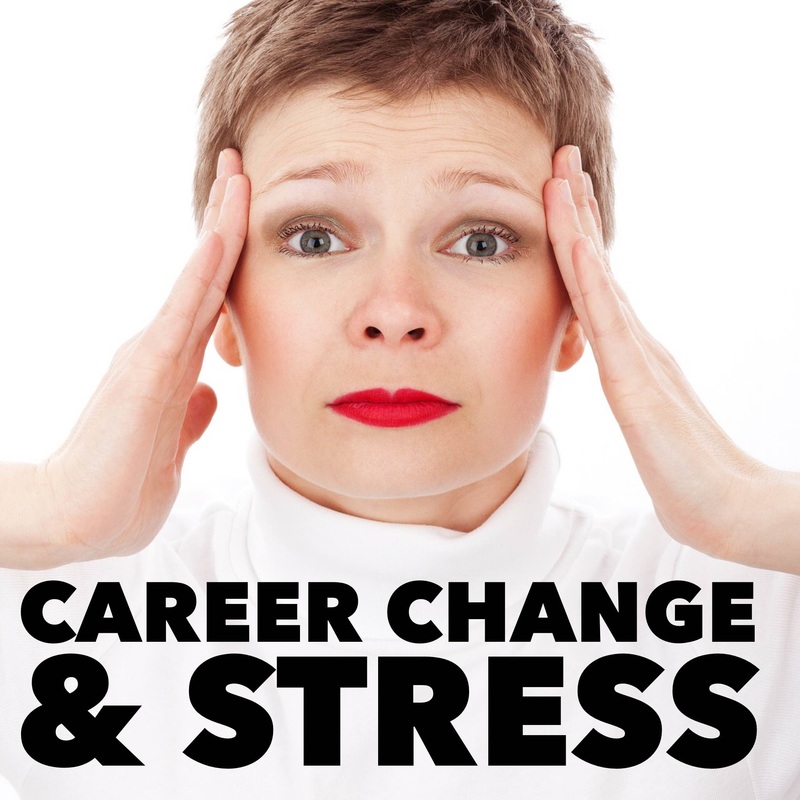
For anyone struggling with their career, unemployed or just looking at changing careers, it can be a very stressful period. If this period is accompanied by worry, extreme stress or mental illness it becomes even more challenging. I ran across this 5 minute video from The School of Life that does a great job of helping you frame the thought process of a career change. A summary and the video are below.
Jay Coulter
Summary
1. Accept that being confused about your career is OK. 2. Know yourself. 3. Think a lot. 4. Try something. 5. Reflect on what makes people unhappy. 6. Be confident BIG IDEA #1: The difference between success and failure is the willingness to "give it a go." BIG IDEA #2: The ultimate criterion when choosing a career should be to choose a career we would not regret on our deathbed. |
Build Your Action Based Stress Reduction System
Popular PodcastsOlympian Suzy Favor Hamilton - From Fame to Prostitution to Advocacy
Hall of Fame Basketball Star Chamique Holdsclaw on Mental Resilience Diana Nightingale on her husband Earl Nightingale's Principles for Mental Health Success JoAnn Buttaro on Date Rape & PTSD Survival Story: Its Never Too Late Gabe Howard on BiPolar Advocacy Phil Fulmer on Teen Suicide Prison, Bipolar and Mania with Andy Behrman Columbia Univeristy's Dr. Rynn on OCD Archives
March 2018
Categories
All
|

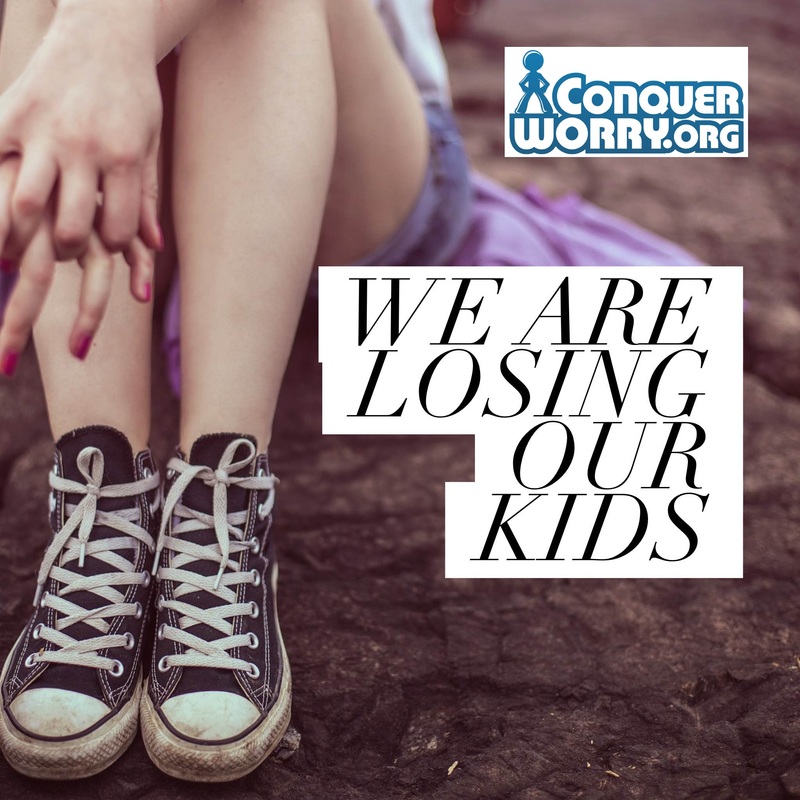
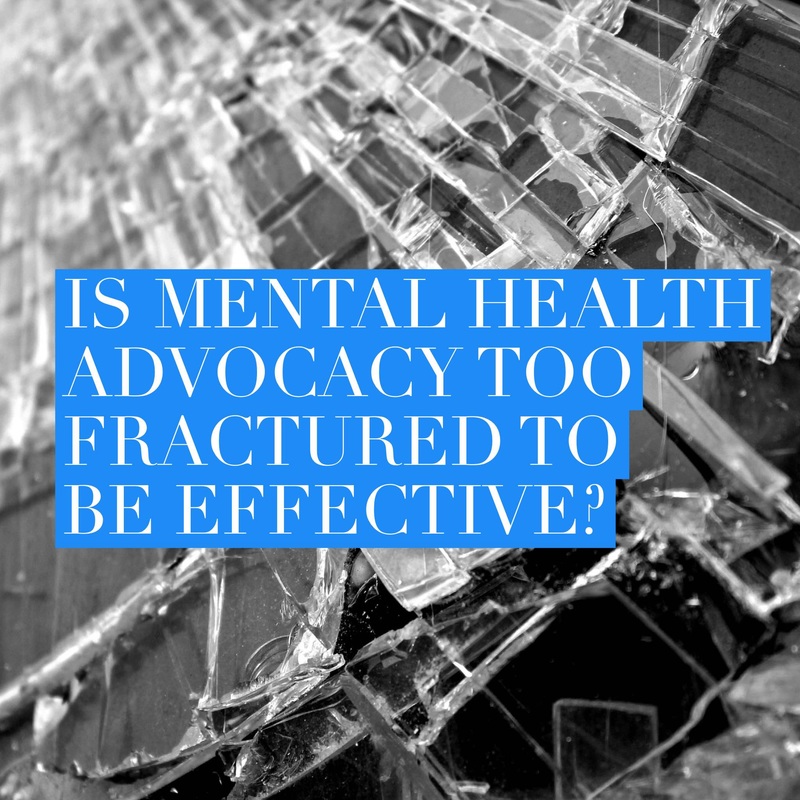

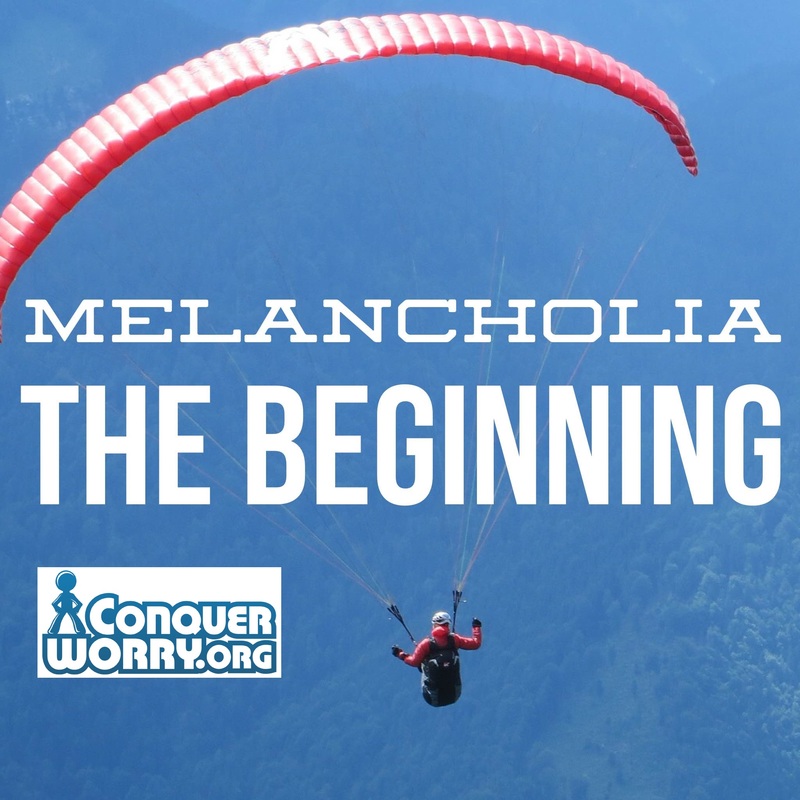
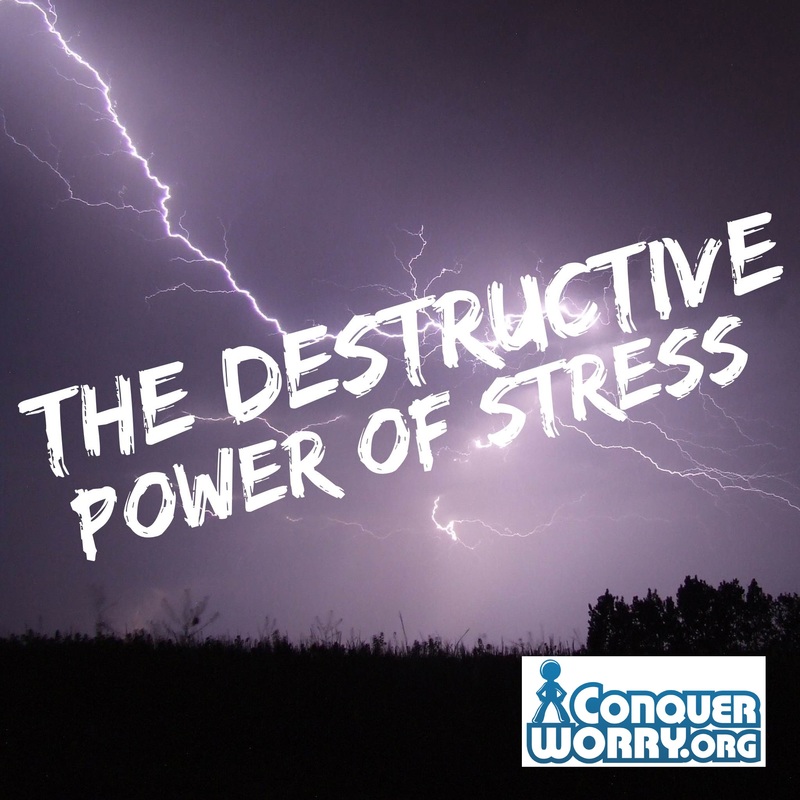
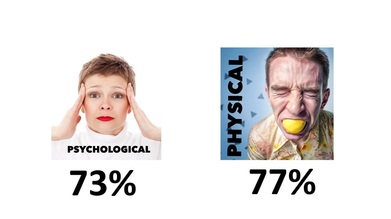
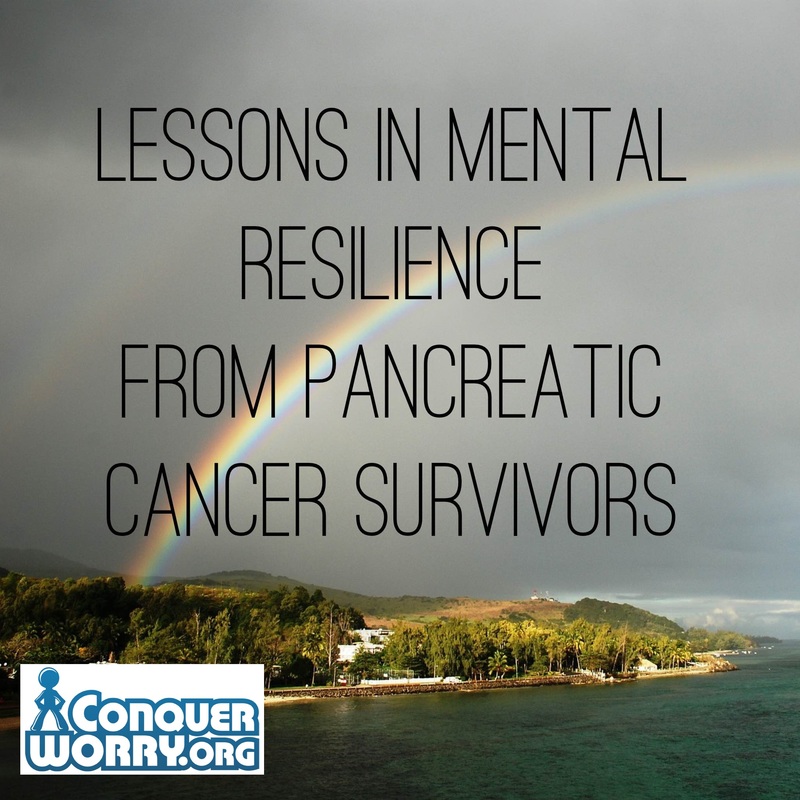
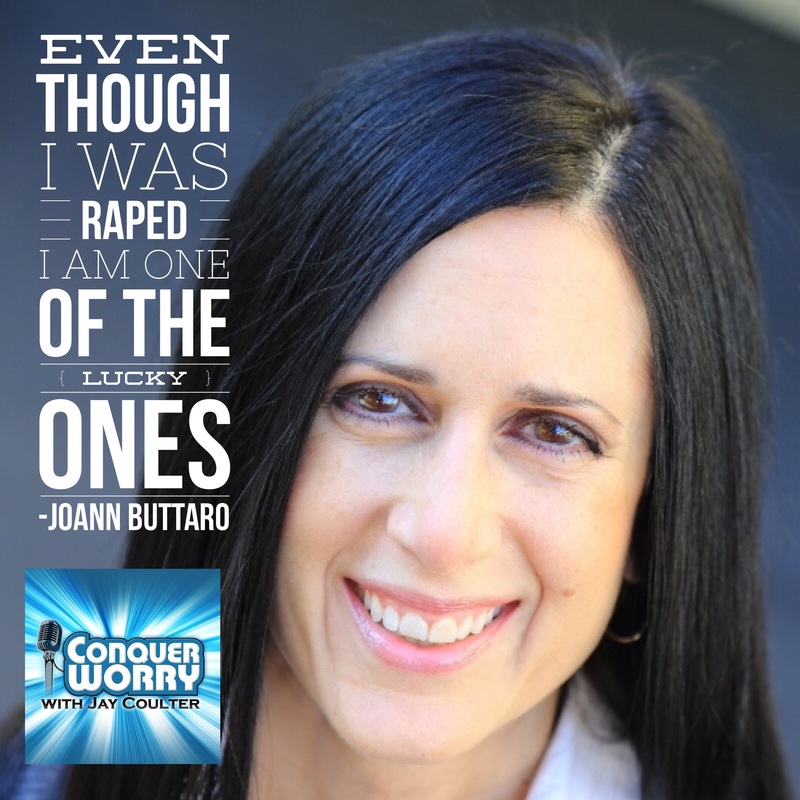

 RSS Feed
RSS Feed





